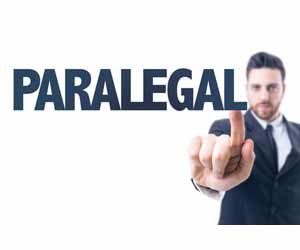What Paralegals Do
More than two-thirds of all attorneys utilize the services of paralegals, and the number continues to rise. Although they bear the ultimate responsibility for the work, lawyers delegate many of their tasks to paralegals, including the drafting of correspondence, memorandums, and briefs; the organization of case files; and the preparation of pleadings and other legal documents. Some of the general duties that paralegals routinely perform include conducting initial interviews with clients, giving status reports, corresponding with clients, adverse counsel, and insurance companies regarding factual matters, summarizing documents or transcripts and keeping a calendar or tickler system updated so that important deadlines aren’t missed.

Paralegals also interview witnesses, conduct legal research, assist attorneys at depositions, mediations, court hearings, and trials, and often work with technology in various capacities.
One of the key tasks that paralegals perform is to help their supervising attorneys get ready for court appearances, closings, jury trials, and corporate meetings. These organizational mavens do much of the legwork for their attorneys and often do everything from investigating the facts of cases to researching the applicable laws. Paralegals collect, analyze, and organize information for an attorney’s benefit so that relevant information is readily available and can be easily located.
Because of their education and background, paralegals are qualified to help attorneys draft a variety of complex legal documents, including motions and affidavits, and also assist attorneys during depositions and at trial. They attend will executions and act as witnesses, and may appear at a real estate closing with their supervising attorneys. Paralegals are experts in keeping things running smoothly and making others, including themselves, look professional!
Much of what a paralegal does depends upon the area of law her supervising attorney practices in. A paralegal who works for a corporate lawyer might draft contracts and help maintain financial records, while a paralegal who is employed by a personal injury attorney spends much of her time requesting, organizing and summarizing medical records and writing settlement demands.

